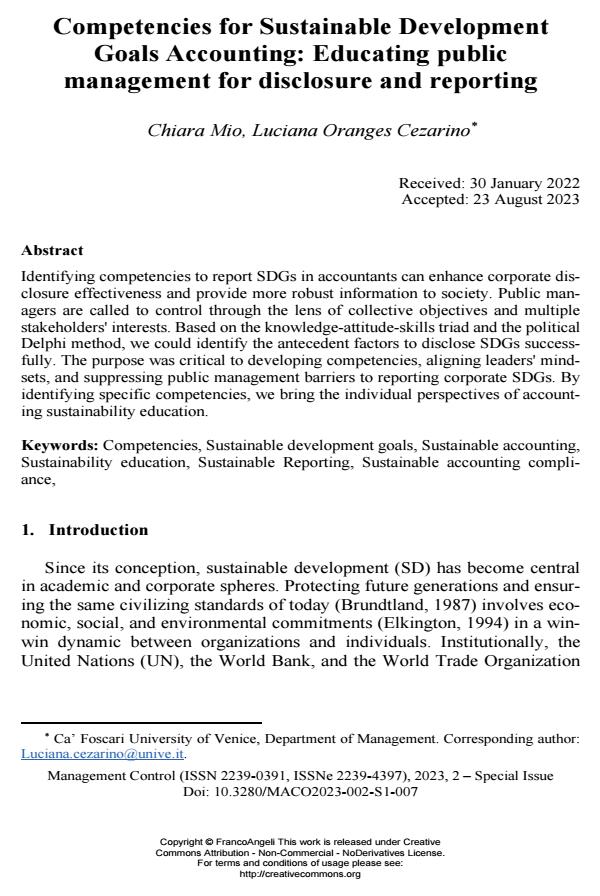Competencies for Sustainable Development Goals Accounting: Educating public management for disclosure and reporting
Titolo Rivista MANAGEMENT CONTROL
Autori/Curatori Chiara Mio, Luciana Oranges Cezarino
Anno di pubblicazione 2023 Fascicolo 2023/2 Suppl.
Lingua Inglese Numero pagine 28 P. 133-160 Dimensione file 304 KB
DOI 10.3280/MACO2023-002-S1007
Il DOI è il codice a barre della proprietà intellettuale: per saperne di più
clicca qui

FrancoAngeli è membro della Publishers International Linking Association, Inc (PILA), associazione indipendente e non profit per facilitare (attraverso i servizi tecnologici implementati da CrossRef.org) l’accesso degli studiosi ai contenuti digitali nelle pubblicazioni professionali e scientifiche.
Identifying competencies to report SDGs in accountants can enhance corporate disclosure effectiveness and provide more robust information to society. Public managers are called to control through the lens of collective objectives and multi-ple stakeholders' interests. Based on the knowledge-attitude-skills triad and the po-litical Delphi method, we could identify the antecedent factors to disclose SDGs successfully. The purpose was critical to developing competencies, aligning leaders' mindsets, and suppressing public management barriers to reporting corporate SDGs. By identifying specific competencies, we bring the individual perspectives of accounting sustainability education.
Parole chiave:Competencies, Sustainable development goals, Sustainable account-ing, Sustainability education, Sustainable Reporting, Sustainable accounting com-pliance,
Chiara Mio, Luciana Oranges Cezarino, Competencies for Sustainable Development Goals Accounting: Educating public management for disclosure and reporting in "MANAGEMENT CONTROL" 2 Suppl./2023, pp 133-160, DOI: 10.3280/MACO2023-002-S1007